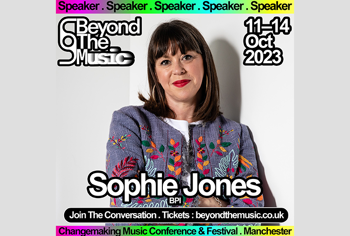You can purchase a copy of 'All About The Music 2018' here.
The first is that over four million vinyl LPs were bought for the first time since the early 1990s; the second is that 68 billion audio streams were served in the UK - a thousand streams for every person in the country. If you add video into the mix, that number goes above 100 billion. Whilst it may seem counterintuitive to consider streaming and vinyl records as complementary formats, for both to be achieving such heights suggests that our industry is serving the diverse demands of music fans exceptionally well.
The way in which music is consumed is changing constantly, bringing about a duality of opportunity and challenge. The advent of smart speakers is a good example – they are poised to extend music subscriptions to more casual listeners in the home and ultimately in-car, giving further impetus to the growth of streaming. But they raise fundamental questions as to how consumers’ discovery of music will be impacted when mediated through voice-enabled AI. They also create new tasks for record labels in ensuring that their artists’ music is easily accessible and effectively marketed through the new interface.
Music is just as popular as it has ever been. The percentage of adults paying for music – either via purchase or streaming – rose in 2017 and almost three quarters of the population listen to music on any given day. Music consumption was up for a third consecutive year, and the 9.5% leap we saw in 2017 marks the steepest rate of market growth in nearly 20 years. It means that industry income is now at its highest level since 2010. British music was again at the forefront of this success, with eight of the 10 biggest albums and singles of the year produced by home-grown talent.
It would be a profound understatement to say that 2017 was a good year for Ed Sheeran: not only was his third album Divide the biggest on all formats, selling a remarkable 2.7m copies, its lead single Shape Of You also topped the year-end singles chart, breaking the record for the most-streamed track ever in the process. Just to underline his dominance, Ed also bagged the Christmas No.1 with Perfect to cement his place in our music heritage.
While there were some concerns about the breakthrough of new talent in the year before, 2017 allayed those in some style. The second-biggest album of the year – and a million seller to boot – was Rag’n’Bone Man’s impressive debut Human. The hugely-anticipated first album from Stormzy raced straight to number one and in early 2018 earned him two BRIT Awards and a Platinum certification. The year also saw the rise of Dua Lipa, who released her self-titled debut album, enjoyed a global hit with New Rules and, like Stormzy, deservedly bagged herself two BRITs. Add into the equation exciting new talent such as J Hus, Loyle Carner, Anne-Marie and Mercury Prize winner Sampha, alongside BRITs Critics’ Choice nominees Jorja Smith, Stefflon Don and Mabel, and it’s clear that the future of British music is in exciting hands.
Whilst we can allow ourselves to feel optimistic about the direction of travel, the music industry still has a long way to go if it is to recover fully. For there to be sustainable long-term growth, a number of structural challenges must be overcome, not least remedying the continuing ‘Value Gap’, so that all digital platforms pay fairly for their use of music. With the transition period following Brexit now agreed, it is imperative that our Government focusses on ensuring that British musicians can tour freely in the EU once we leave, while we also hope that Government will take the opportunity of its Digital Charter to forge an online environment that is safe for consumers and where illegal sites cannot flourish, to make the UK the best place in the world to invest in creating new content.
Geoff Taylor
Chief Executive BPI and BRIT Awards




